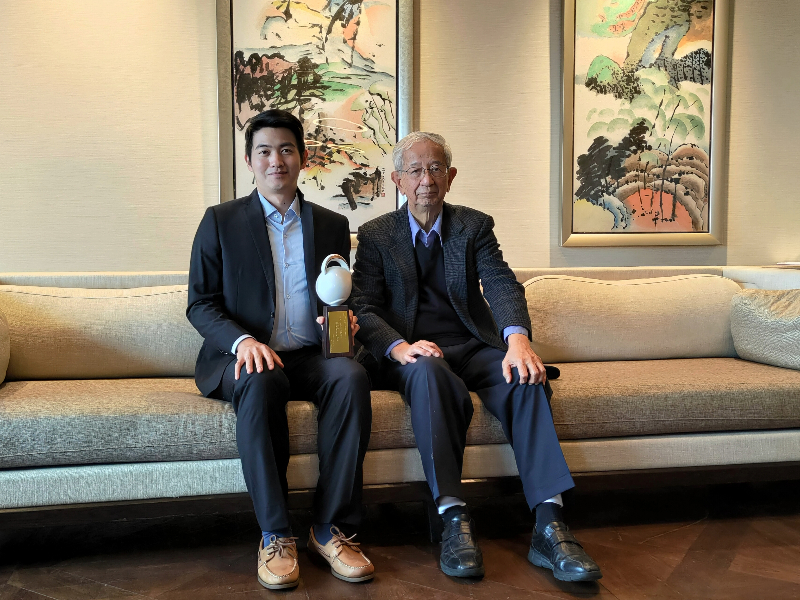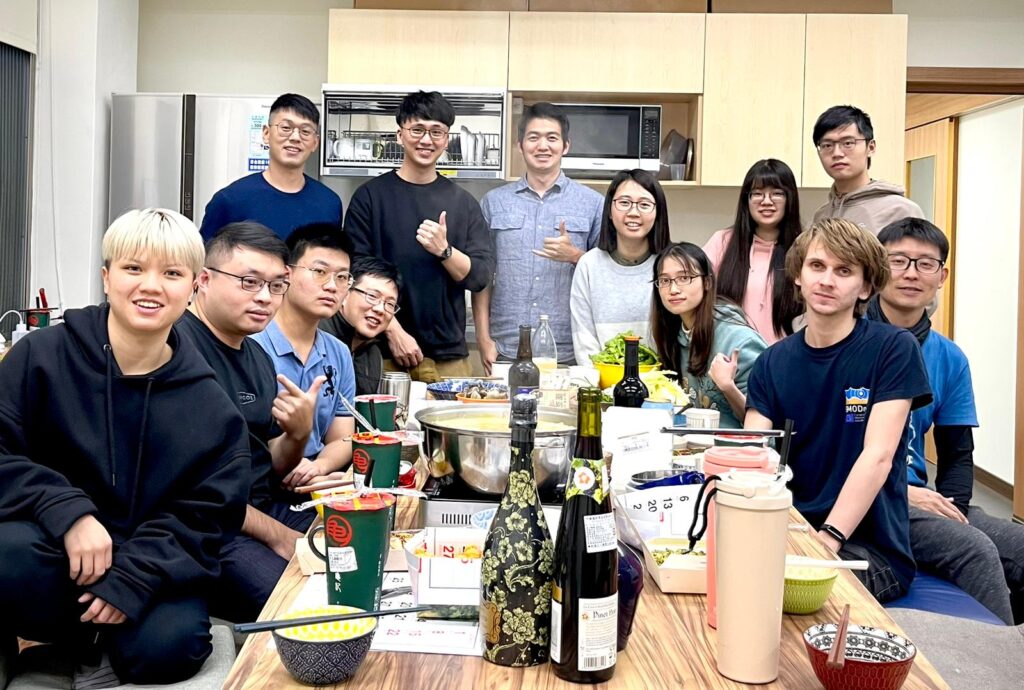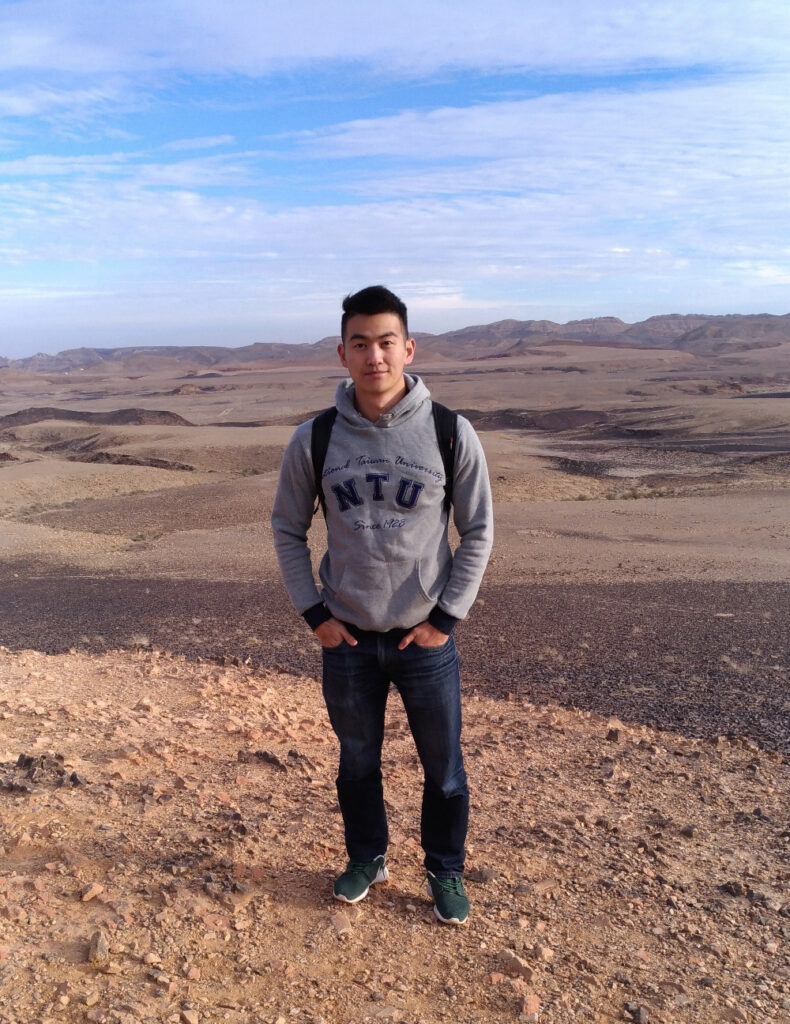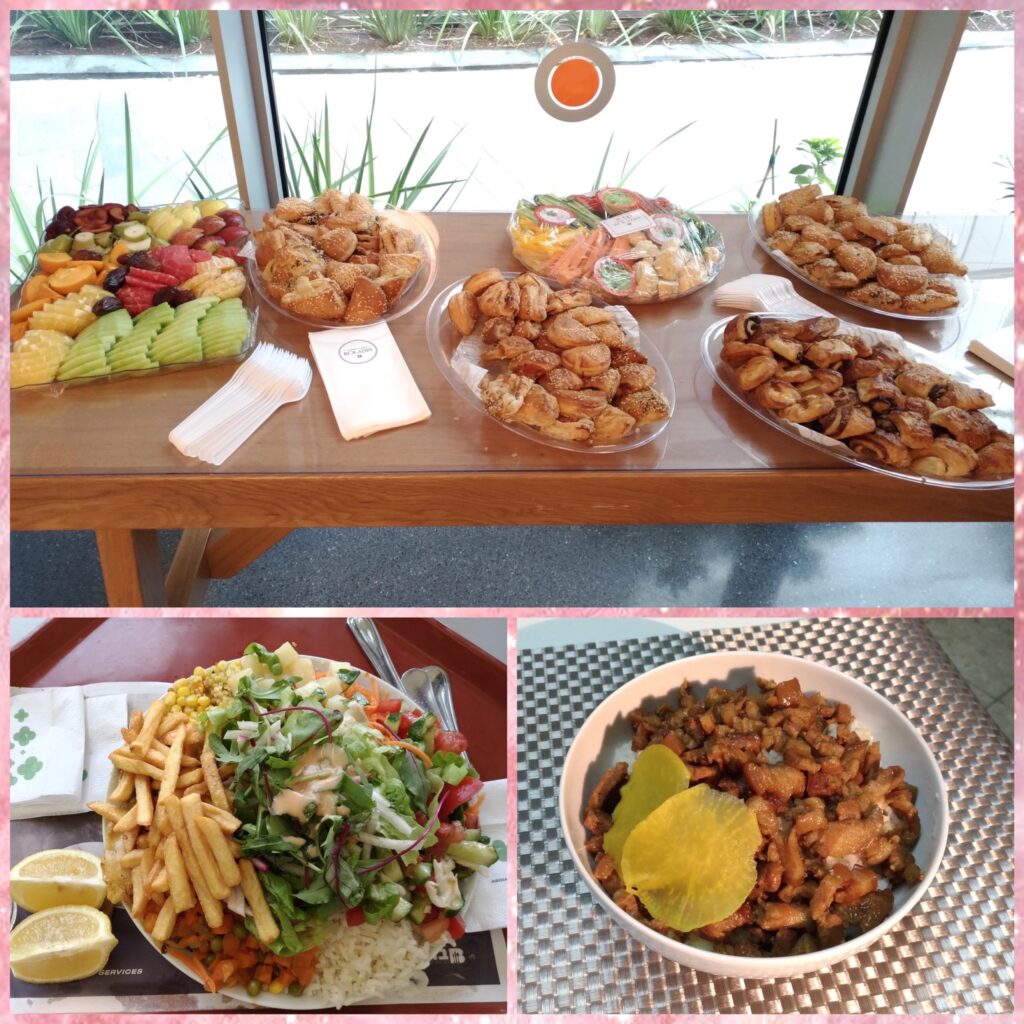

Education and Work Experiences:
🔹2005-2009 B.Sc., Department of Life Science, National Taiwan University
🔹2009-2011 M.Sc., Institute of Ecology and Evolutionary Biology, National Taiwan University
🔹2012-2013 RA, Institute of Plant and Microbial Biology, Academia Sinica
🔹2013-2016 Dr. rer. nat., Department of Biology, University of Düsseldorf, Germany
🔹2016-2018 Postdoc, Department of Plant and Environmental Sciences, Weizmann Institute of Science, Israel
🔹2019-2023 Assistant Research Fellow, Institute of Plant and Microbial Biology, Academia Sinica
🔹2023~ Associate Research Fellow, Institute of Plant and Microbial Biology, Academia Sinica
🔹2023~ EMBO Global Investigator, European Molecular Biology Organization
Congratulations for being selected as an EMBO Global Investigator this year (2023).
Can you share your experience as an EMBO Global Investigator?
EMBO, short for “European Molecular Biology Organization,” was established in 1964 as a non-profit international organization dedicated to advancing research and development in the field of life sciences. It facilitates life science research and promotes international talent mobility and collaboration by sponsoring conferences, workshops, courses, research visits, fellowships, and other programs. The “Global Investigator Network” program, launched in 2018, specifically offers opportunities for scientists from four non-European countries (including Taiwan as a cooperation partner) to participate in the EMBO scientific community, fostering exchange and collaboration between these countries and EMBO member states.
Some young researchers in Taiwan might be less familiar with EMBO, but besides the Global Investigator Network program for principal investigators (PIs), it offers Postdoctoral Fellowships and Scientific Exchange Grants for short-term international research visits. Additionally, EMBO organizes courses and seminars in various fields of life sciences, in which everyone can apply to participate.
Why do you enjoy doing research?
I believe the most fascinating aspect of engaging in research is the feeling of “understanding” and the desire to be the first person in the world to comprehend a particular phenomenon or mechanism. Moreover, I love the diversity and variety in the academic research environment, where I constantly learn from the research of other people and have opportunities to interact with researchers from around the world. This kind of job aligns perfectly with my ideal of a fulfilling career.
What led you to become a research assistant at Academia Sinica between 2012 and 2013?
During that period, I applied for a doctoral scholarship in Germany, which required a year of preparation. To make the most of this gap year, I decided to join the research lab of Prof. Chih-Horng Kuo at IPMB, with whom I was already acquainted, as a research assistant. Apart from earning income and achieving research outcomes, learning new knowledge was also a crucial reason for my decision.
My previous master’s research focused on phylogenetic analysis of plants and symbiotic bacteria, and for my PhD I decided to delve into the study of eukaryotic and prokaryotic genome evolution. Therefore, my experience in bacterial genomics at IPMB laid the foundation for my future doctoral research. This experience also provided me with a deeper understanding of Academia Sinica’s research units and researchers, and I grew fond of the academic environment and facilities here. It ultimately became the reason why I considered here as my top choice when seeking a PI position later.
In summary, factors such as future career planning, exploring new fields of knowledge, getting to know the research environment, and building networks are all crucial aspects to consider when planning for short-term research assistant jobs.
Could you give any career advice in one sentence to current research assistants?
It’s challenging to encompass everyone’s situation in a single sentence, as each individual’s path is unique. The key is to pursue a career you are truly passionate about. Additionally, despite being referred to as “research assistants” in the current system, I don’t think master’s or bachelor’s level researchers should be labeled as assistants, as this may wrongly imply that they are merely providing support. In reality, they can be the ones actively conducting research and are essential members alongside PIs, postdocs, and graduate students. Regardless of the duration of their work, their contributions should never be underestimated.
Did you worry about your career path before becoming a PI?
Of course I did think about it. I usually take things step by step and focus on pursuing research or work that I’m interested in. I had previously worked as part-time translator, so if I didn’t continue in research, I might have become a translator. Making a living wouldn’t be too difficult, but it is important to know what you enjoy doing and what kind of life you want to pursue. During my research journey, I was fortunate to receive a lot of help, and now I get to do what I love.
For those interested in becoming a PI, you should try to explore the relevant job market and be prepared when positions open. Besides faculty positions, research institutes like Academia Sinica have long-term positions (e.g., research specialists, staff scientists) that are equally suitable for people passionate about research-related work. I recommend checking out these opportunities.
The current team members and research topics in your lab?

Our lab currently consists of seven postdoctoral and master’s researchers, along with one master’s student, and occasionally research interns and visiting scholars. The current and past team members come from diverse backgrounds, including Taiwan, France, Malaysia, Poland, Germany, the Philippines, Thailand, and others. We warmly welcome anyone from any country with interests in the evolution and ecology of eukaryotic microbes to join our team. Our lab focuses on important microbes in the Earth’s environment and ecosystems, with three main research directions:
1. Evolution and regulation of microalgae: We study coccolithophores, which play a significant role in calcium carbonate production in the oceans, and explore the evolutionary history, life cycle, and regulation of calcification processes in these globally distributed algae.
2. Giant viruses: Many eukaryotes are susceptible to infection by giant viruses, which have genomes and particle sizes approaching those of small bacteria. We study the coevolution of these viruses and their hosts, as well as the history of genome gigantism.
3. Microalga-microbe interactions: Using single-cell isolation and analysis techniques, we investigate biological phenomena at the level of individual microbes. These include the study of microalga-host symbiosis, predation, and viral infection.
Why did you choose to pursue a PhD in Germany in 2013? Please share your experiences.
My connection with Germany stemmed purely from my interest in learning a second foreign language during high school. Coincidentally, the Taipei German Cultural Center (now Goethe Institute) was close to my home, so I decided to choose German. Later, in my sophomore year of university, I received a language scholarship from the German Academic Exchange Service (DAAD) and spent a month in Düsseldorf, Germany, taking a summer German course. At that time, I found the living environment in Germany quite pleasant, and I really enjoyed the cool climate there.
Subsequently, after completing my master’s oral defense while awaiting the beginning of my military service, I began contemplating my career development after the service. During this process, I came across some research articles on the origins of chloroplasts and mitochondria, which happened to be a field that had always fascinated me. Many of these studies were conducted by a research group (Prof. William Martin) at the University of Düsseldorf, so I decided to contact the professor to inquire about potential PhD positions. After sending two emails, I received a reply suggesting that I could apply for a DAAD PhD scholarship, which eventually solidified my plan for the following years.
In Taiwan, we often use the term “to study a PhD” (讀博士) which has the connotation of studying a lot of books. However, in Germany, pursuing a doctoral degree is more considered as a job. PhD students typically sign a work contract with the university or research institution. In German, PhD students are referred to as “Doktorand” (derived from the word “Doktor”), rather than “PhD student” as in English. There is even a specific verb, “promovieren,” to describe the process of “writing a thesis to obtain a doctoral degree.” Earning a PhD in Germany does not usually involve taking many courses, as German universities expect students to have completed relevant coursework before entering the PhD program.
Additionally, since PhD students produce research output, they receive corresponding salary compensation. In the field of biology, for example, the salary is generally around 60-70% of a postdoctoral researcher’s salary. Although the role of PhD students might vary, the basic concept of providing financial support to PhD students in Germany is similar to the model in research institutions like Academia Sinica, which now provides a PhD stipend of up to nearly 2,000 USD per month.
I also noticed some other differences between my working environment in Germany and Taiwan. For example, because Academia Sinica is home to over 30 institutes or research centers, diverse seminars across different fields are open to everyone and organized on a daily basis. The various centralized core facilities on Academia Sinica’s campus also makes it easy to access different research equipment and expertise. While Germany has good public transportation, subways and buses may not come as frequently as those in Taipei, and you often have to wait for a longer time if you miss a connection. However, it is quite common in Germany to walk or cycle a kilometer to work, whereas Taiwan has on average one motor vehicle per person (including children), which occupies too much space that should have been sidewalks, contributing to what is now known as the “living hell for pedestrians.”
The reason for choosing to work in Israel? Please share your experiences.

After completing my PhD in Europe, I wanted to do postdoctoral research in a region I had not been to before or had fewer chances of going to. The Middle East was one of the options. Upon the recommendation of my doctoral advisor, I learned about the Weizmann Institute of Science in Israel, which has a marine microbiology lab (Prof. Assaf Vardi) that aligned perfectly with the direction I wanted to explore. As there are no direct flights between Taiwan and Israel and limited exchange between the two countries, some Taiwanese may have concerns about my safety when I told them about it. However, conflicts, if any, are mostly closer to border areas and affect less the inland. One of the cultural shocks I had was that Israelis are generally very straightforward in asking questions and that some Israelis are not always rule-abiding, which could make the road traffic somewhat chaotic. These characteristics might be related to how Israelis can think outside of the box in science or entrepreneurship, but they can also surprise Taiwanese people who are used to following rules and queuing properly in daily life.
Perhaps due to the influence of education and the complexity of an immigrant society, many Israelis love to debate and to prove they are right. It’s not uncommon to see people apparently arguing with each other on the streets. There is less hierarchy and formality between individuals, and they often address each other directly by their names, in sharp contrast to the traditional “teacher-student” relationship in Taiwanese institutions. I think this culture is beneficial for fostering an atmosphere of academic discussion. During lab meetings, everyone speaks up without waiting for the PI to ask questions. Even during seminars, it is common to have interruptions for questions, which allows the speaker to clarify certain concepts and ensures that the audience can follow along. When I returned to Taiwan, I found it a bit challenging to adapt to the culture where many people wait for professors or more senior people to speak first.

(Bottom left) Inside the Weizmann Institute, the restaurant San Martin offers whole-plate-full meals at a cost of about 200 NTD each, with a variety of main dishes, vegetables, grains, and more.
(Bottom right) Finding authentic East Asian restaurants in Israel is challenging, which had led to improvement of culinary skills in making Taiwanese dishes such as braised pork rice.
Another notable difference is that Israeli graduate students generally tend to be older compared to those in Taiwan or Germany. This is because most Israelis are required to serve in the military, for about three years for men and two years for women. Many of them enlist right after high school graduation and often travel abroad for a gap year after their service. As a result, they might be a few years older when they enter college. From the perspective of some Taiwanese, it might seem like they spent a lot of time unrelated to their study or career, but I think these experiences do help Israelis make more mature and better decisions about their career path.
Lastly, Israelis place significant importance on their family and country, which is reflected in different aspects of academic career. First, the majority of Israeli researchers choose to do PhD at domestic institutions, which gives them more time to spend with their families and friends in Israel. After obtaining a PhD they may consider postdoc opportunities at foreign institutions where they can work on new topics. Additionally, Israel has a high fertility rate, so despite the long military service period, most people marry around the age of 30 and often have children soon after. This stage coincides with their PhD research, and it is quite common for PhD and other researchers in Israel to take parental leave. Although the childcare support and subsidies might not be particularly appealing compared with some countries, children are seen everywhere in various places and I feel that people are more tolerant to the presence of children in the Israeli society than in Taiwan. These are probably the main reasons for the notable gap in fertility rates between Taiwan and Israel.
To know more about Dr. Chuan Ku, please
Visit IPMB at https://ipmb.sinica.edu.tw/ch/people/ipmb_researchers/ku-chuan
Visit the lab website at https://chuanku-lab.github.io/kulab/
Follow him on Twitter (X): @chuanku_
